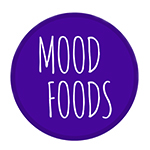Zinc Deficiency
Zinc is an important mineral for the body because it strongly supports the immune system, helps produce proteins and DNA, helps wounds heal, and aids in one’s sense of taste and smell (Mighty Micronutrients). The scale of zinc deficiency is huge, with an estimated one third of the world’s population living in countries where such malnutrition is high, and the symptoms are vast. “Slow growth in infants and children, delayed sexual development in adolescents, impotence in men, hair loss, diarrhea, eye and skin sores, loss of appetite weight loss, problems with wounds healing, decreased ability to taste food, and lower alertness levels” (Mighty Micronutrients) all characterize zinc deficiency, which ultimately contribute to as many as 800,000 child deaths per year (IMMPaCt).
Recommendations for increasing zinc consumption can be either via supplements or a change in one’s diet. Natural food sources of zinc include red meat, poultry, seafood, beans, nuts, whole grains, and dairy products.

